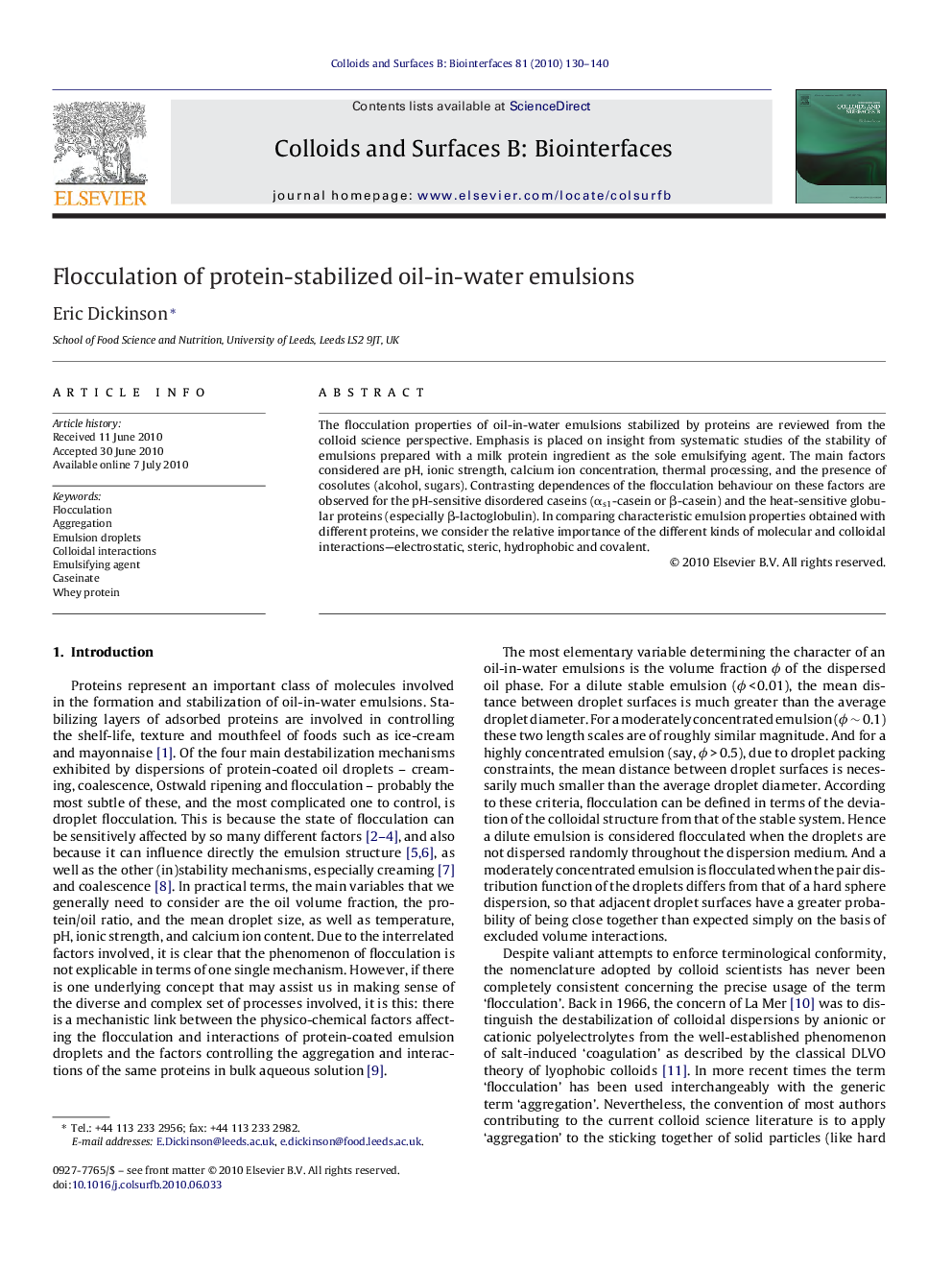| Article ID | Journal | Published Year | Pages | File Type |
|---|---|---|---|---|
| 601591 | Colloids and Surfaces B: Biointerfaces | 2010 | 11 Pages |
The flocculation properties of oil-in-water emulsions stabilized by proteins are reviewed from the colloid science perspective. Emphasis is placed on insight from systematic studies of the stability of emulsions prepared with a milk protein ingredient as the sole emulsifying agent. The main factors considered are pH, ionic strength, calcium ion concentration, thermal processing, and the presence of cosolutes (alcohol, sugars). Contrasting dependences of the flocculation behaviour on these factors are observed for the pH-sensitive disordered caseins (αs1-casein or β-casein) and the heat-sensitive globular proteins (especially β-lactoglobulin). In comparing characteristic emulsion properties obtained with different proteins, we consider the relative importance of the different kinds of molecular and colloidal interactions—electrostatic, steric, hydrophobic and covalent.
